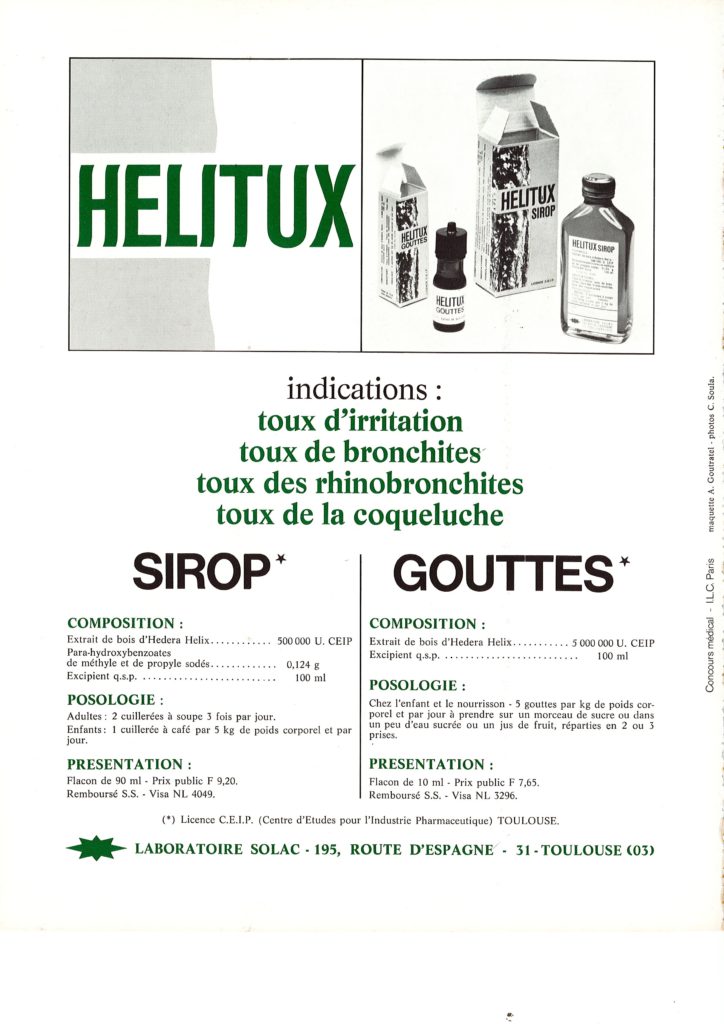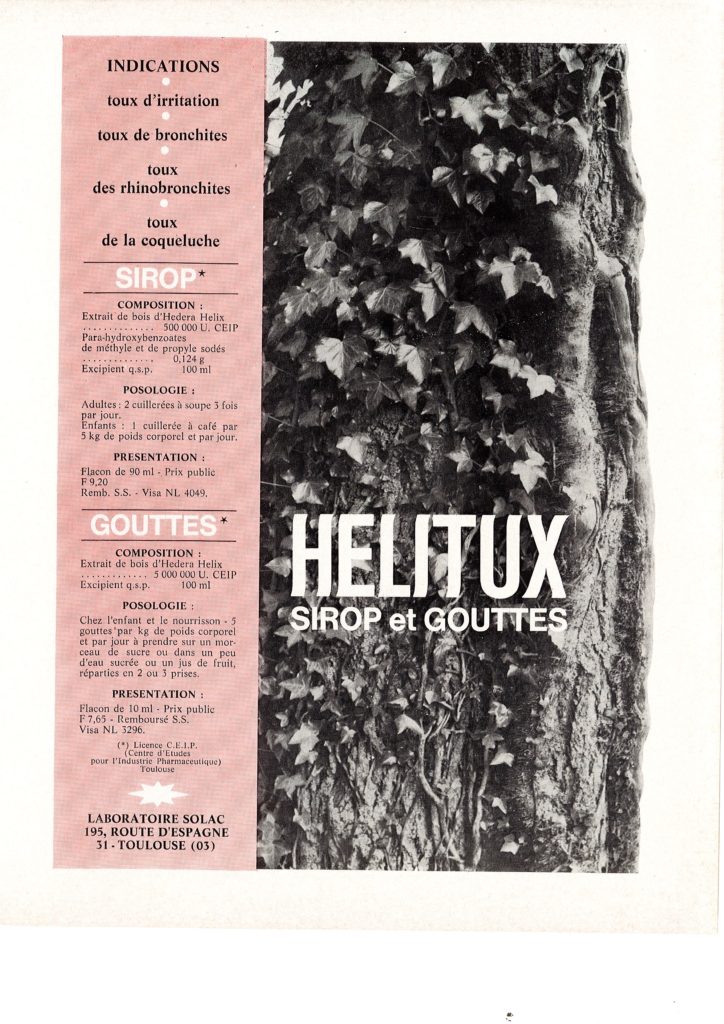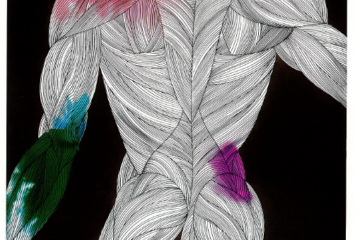The plant Hedera helix L. (common ivy, a liana widespread in European temperate forests) has been utilized for the treatment of cough for a long time. In particular, extracts of the plant leaves have been largely used to treat acute upper respiratory tract infections. They have antitussive and expectorant activities. Here, the medicinal product Helitux® was prepared from the wood part of the plant and recommended for the treatment of productive cough in children. Syrups containing ivy extracts remain used today (mostly leaf dry extracts) in different countries. It represents an effective alternative to acetylcysteine (the product most used to treat cough) with respect to the improvement of respiratory function in children and adults.
Hedera helix (Araliaceae family) is considered a good source of bioactive natural products, including triterpene saponins, flavonoids and phenolic acids. The plant is used in medicine and in cosmetics, for its cytoprotective, anti-inflammatory and antioxidant activities. One of the most abundant active natural products found in ivy extracts is the glycosylated saponin called hederacoside C, well known for its capacity to modulate inflammation. It can inhibit production of pro-inflammatory cytokines such as interleukins IL-6, IL-1β, and TNF-α and enhances production of anti-inflammatory cytokines such as IL-10. Another saponin included in the extract, α-hederin, can contribute also to attenuate lung inflammation and shows secretolytic properties. Different saponins found in ivy leaves display mucolytic, spasmolytic, broncho-dilatory and antibacterial effects.
An illustration of the plant Hedera helix, with its characteristic liana morphology, growing on trees. The plant exhibits a so-called “finger-like” branching morphology. Here the illustration essentially refers to the vegetal origin of the medicinal product used to control cough.





